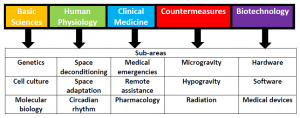WHY SPACE MEDICINE?
 Space medicine focuses on the health and well-being of astronauts in low-Earth-orbit and space. This area of research will have great importance to the success of future space missions, especially those of longer duration. Our bodies have been shaped over thousands of years by Earth’s gravity. Remove or reduce that gravity and we know it has detrimental effects on the body, for example, affecting the cardiovascular system by decreasing heart size and blood volume, diminishing bone density and muscle mass, impairing the vestibular system function and reducing the ability of the immune system, among others. These can have undesirable health consequences for the astronauts themselves, both in space and upon return to Earth’s gravity, and can also lead to operational difficulties for any mission. Therefore, continued research is vital for the health and well-being of space travellers, whether on short-or long-term missions, and equally for space tourists, as the space tourism industry is launched.
Space medicine focuses on the health and well-being of astronauts in low-Earth-orbit and space. This area of research will have great importance to the success of future space missions, especially those of longer duration. Our bodies have been shaped over thousands of years by Earth’s gravity. Remove or reduce that gravity and we know it has detrimental effects on the body, for example, affecting the cardiovascular system by decreasing heart size and blood volume, diminishing bone density and muscle mass, impairing the vestibular system function and reducing the ability of the immune system, among others. These can have undesirable health consequences for the astronauts themselves, both in space and upon return to Earth’s gravity, and can also lead to operational difficulties for any mission. Therefore, continued research is vital for the health and well-being of space travellers, whether on short-or long-term missions, and equally for space tourists, as the space tourism industry is launched.BENEFITS TO LIFE ON EARTH
Finding solutions to the health challenges faced by astronauts living and working in space has improved our understanding of human physiology and clinical medicine on Earth. Space-related research has been pushing the limits of engineering and life sciences, which in turn has benefited us all.
These benefits come in all forms, often from devices in our everyday lives that we now take for granted, like the protective lining on glasses derived from the need for a special coating to protect astronaut helmet visors; and also from high-tech medical exams, such as CAT Scanners and MRI technology that originated from computer-enhancement technology developed for lunar imaging; or simple ear thermometers derived from infrared sensors that NASA used for measuring the temperature of distant celestial objects.
